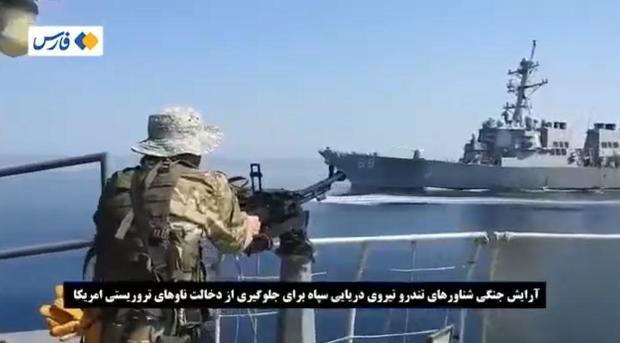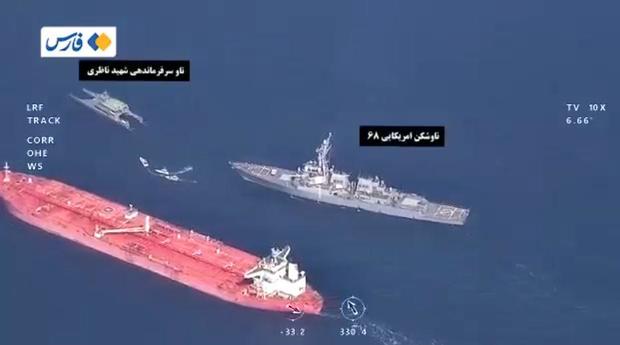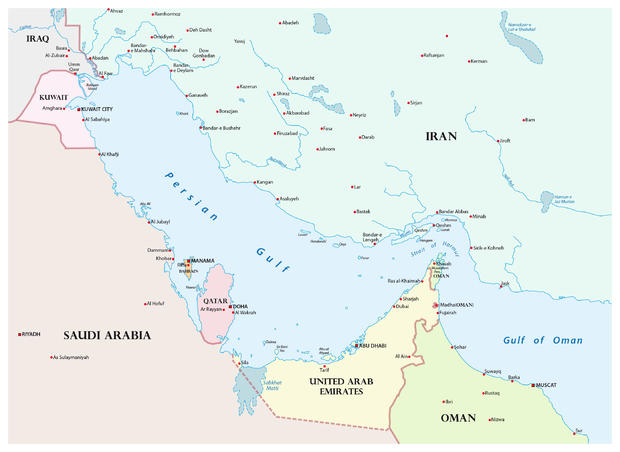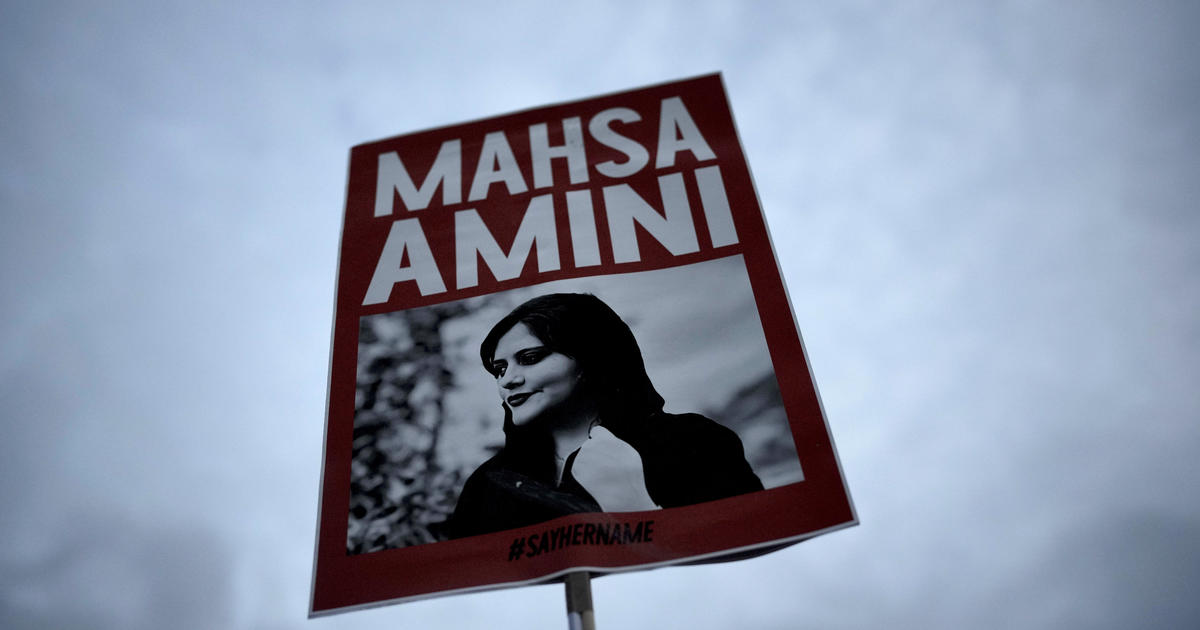U.S. denies Iran's claim that American Navy attempted to "steal" a tanker full of oil
Iran's state-run media claimed on Wednesday that the Islamic Republic's military had thwarted an attempt by a U.S. vessel to "steal" a tanker full of Iranian oil as it traversed the Gulf of Oman. The claim, which made no specific reference to timing, was the latest sign of mounting tension between the two countries as the prospects of a new agreement on Iran's nuclear program fade.
Speaking to CBS News' David Martin, U.S. Defense officials disputed the claim, saying there was an incident last week in which two U.S. Navy destroyers were sent to monitor a Vietnamese flagged vessel which had been seized by Iranian Revolutionary Guards, but that there was no attempt to intervene or seize the cargo.
Videos released later on Wednesday by Iran appeared to show a close encounter, however.
Since former President Donald Trump's unilateral withdrawal from the 2015 international nuclear agreement with Iran, the U.S. has imposed strict economic sanctions on the country, including restrictions on its sale of oil — the lifeblood of Iran's beleaguered economy. The U.S. has in the past intercepted and confiscated Iranian oil shipments as it enforces U.S. sanctions.
The Iranian regime has for months vowed to revive its oil exports despite those U.S. sanctions, which it considers illegal.
The Biden administration and the U.S. Navy's 5th Fleet, which has responsibility for American naval operations in the Persian Gulf and surrounding waters, did not issue any immediate public response to Iran's claim on Wednesday. Iranian officials also issued no immediate comment, though the nation's state media serve as a mouthpiece for the regime.
The state-run Mehr news agency's brief report described a "recent" confrontation between speedboats operated by the elite Islamic Revolutionary Guard Corps (IRGC) and an American vessel, which it did not identify, in international waters in the Gulf of Oman. That body of water, along with the Persian Gulf, forms Iran's southern border.
Mehr said the U.S. vessel had tried to block the tanker carrying Iranian oil — and some reports suggested the tanker had even been boarded by American personnel — but that the U.S. attempt was deterred by the Revolutionary Guard. Mehr said the tanker was taken by the Iranian forces back into the country's territorial waters.
Iranian media later aired video clips provided by the Revolutionary Guards that were said to depict the incident. The video shows what appears to be two U.S. Navy warships in close proximity to a large tanker and smaller Iranian military vessels. In some of the clips, Iranian forces can be seen pointing ship-mounted guns at the larger warships. An Iranian military helicopter is shown flying toward the tanker and dropping troops onto its deck, where they fan out with guns pointed.
The incident highlights the increasingly tense environment in both the physical waterways through which much of the world's oil supply passes, and the political faceoff between Tehran and the West over the country's nuclear program.
The head of Iran's Supreme National Security Council said in a tweet on Wednesday that future negotiations couldn't be guaranteed, suggesting President Biden lacked "authority" within the U.S. government to strike a new deal and ensure it was adhered to.
"The U.S. President, lacking authority, is not ready to give guarantees. If the current status quo continues, the result of negotiations is clear," Ali Shamkhani said.
Iran's foreign minister also criticized the U.S. stance in the frozen nuclear talks, and reiterated Tehran's demand that all U.S. sanctions imposed since Trump's 2018 withdrawal from the nuclear deal be lifted as a precondition for any new negotiations.
The Biden administration has said it's not willing to make that concession.
"The White House calls for negotiations with Iran… Yet it simultaneously imposes new sanctions on Iranian individuals & entities," Foreign Minster Hossein Amir-Abdollahian said Tuesday on Twitter, adding that Tehran was "closely examining Mr. Biden's behavior."
The U.S. Treasury Department announced new sanctions on a few Iranian officials and companies for their role in the Iranian Revolutionary Guards drone program at the end of October.
Speaking to CBS News' "Intelligence Matters" host Michael Morell this week, former senior CIA operations officer Norman Roule, the intelligence community's former senior officer on Iran, said it was currently "difficult to see how the nuclear agreement survives."
He discussed a number of factors, including Iran's continued nuclear advances in violation of the terms of the 2015 agreement, its continued support of malign groups in the wider region, and the "deeply fragmented" international stance on Tehran's actions as reasons to hope for little progress in political dialogue.
"Russia and China are not on board with pressure against Iran, and diplomacy lacks any coercive element at present," Roule told Morell. "So this is a very good time for Iran to seek additional concessions, and long-term concessions, from the West for a nuclear deal."






